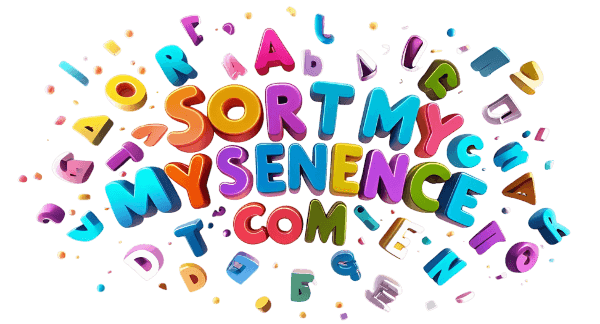Numbers, time, and dates are part of everyday English conversations, but they can trip up even advanced learners. Saying “twenty-six” instead of “twenty-sixth” for a date or mixing up AM and PM can lead to confusion. At Sort My Sentence, our Number, Date & Time Converter helps you avoid these pitfalls by teaching you the correct expressions. In this article, we’ll explore five common mistakes when talking about numbers, time, and dates—and show you how to get them right. Let’s dive in! 🚫
1. Using Incorrect Ordinal Numbers for Dates
One of the most frequent mistakes is forgetting to use ordinal numbers (like “first,” “second,” “third”) when talking about dates. For example, saying “October twenty-six” instead of “October twenty-sixth” sounds unnatural and can confuse native speakers.
Our Number, Date & Time Converter makes this easy. Enter a date like 26.10.1991, and it outputs “October twenty-sixth, nineteen ninety-one.” Practice with dates like 01.01.2000 (“January first, two thousand”) to build confidence.
2. Mixing Up AM and PM in Time Expressions
Using AM and PM incorrectly is a common error, especially in 12-hour time formats. For instance, saying “six PM” for 06:00 in the morning is wrong—it should be “six AM.” This mistake can lead to scheduling mix-ups!
With the converter, you can input times like 06:42 and get “six forty-two AM” or 14:30 for “two thirty PM.” Try entering different times to see how AM and PM work, and avoid this confusion in real-life conversations.
3. Mispronouncing Large Numbers
Large numbers like 1234 or 1,234,567 can be daunting. Learners often say “one thousand two hundred thirty-four” incorrectly as “twelve hundred thirty-four” or stumble over millions. Grouping digits (e.g., 1,234 as “one thousand two hundred thirty-four”) helps, but it takes practice.
The converter turns numbers like 1234.56 into “one thousand two hundred thirty-four point five six.” Use it to practice big numbers, phone numbers, or prices, and sound more natural when shopping or giving addresses.
4. Confusing Date Formats (American vs. British)
English date formats vary by region. In American English, it’s MM/DD/YYYY (e.g., 10/26/1981 for October 26, 1981), while British English uses DD/MM/YYYY (26/10/1981). Mixing these up can cause misunderstandings, especially in writing.
Our converter uses a universal input (YYYY-MM-DD) and outputs the correct English phrase, like “October twenty-sixth, nineteen eighty-one.” Practice with dates to understand both formats and use them correctly in emails or forms.
5. Using 12-Hour Time in 24-Hour Contexts (and Vice Versa)
Some learners use 12-hour expressions like “two PM” in contexts requiring 24-hour time, such as military or travel schedules, where “fourteen hundred” (14:00) is expected. Conversely, saying “fourteen fifty-nine” in casual conversation might sound overly formal.
The converter supports both formats. Enter 14:59 to get “fourteen fifty-nine” (24-hour) or 14:30 for “two thirty PM” (12-hour). Practice switching between formats to match the context, whether it’s a flight schedule or a friendly chat.
Practical Tips to Get It Right
Avoiding these mistakes is easier with the right strategies. Here are some tips to help you master numbers, time, and dates:
- Group Large Numbers: Break numbers into chunks (e.g., 1,234,567 as “one million, two hundred thirty-four thousand, five hundred sixty-seven”).
- Use Ordinal Numbers for Dates: Always add “-th,” “-st,” “-nd,” or “-rd” (e.g., “twenty-sixth”).
- Check AM/PM: Morning is AM, afternoon/evening is PM. Use the converter to confirm.
- Learn Regional Formats: Know when to use MM/DD/YYYY (American) vs. DD/MM/YYYY (British).
- Practice with Real Scenarios: Use the converter for shopping, scheduling, or writing dates.
Fun Practice with Sort My Sentence’s Converter
Turn learning into a game with our Number, Date & Time Converter! Try this fun exercise:
- Enter a random number (e.g., 1234.56), time (e.g., 14:59), or date (e.g., 16.10.1999).
- Write down the converter’s output (e.g., “fourteen fifty-nine” or “October twenty-sixth, nineteen eighty-one”).
- Say it aloud to practice pronunciation.
- Challenge a friend to do the same and compare results!
Combine this with our sentence sorting games or vocabulary games for a complete learning experience.
Conclusion
Numbers, time, and dates don’t have to be a stumbling block in your English journey. By avoiding these common mistakes and practicing with Sort My Sentence’s Number, Date & Time Converter, you’ll speak and write with confidence. Ready to get started? Try the converter now and share your favorite tip in the comments below!
Found this article helpful? Share it on social media to help others avoid these common English mistakes! 📱
